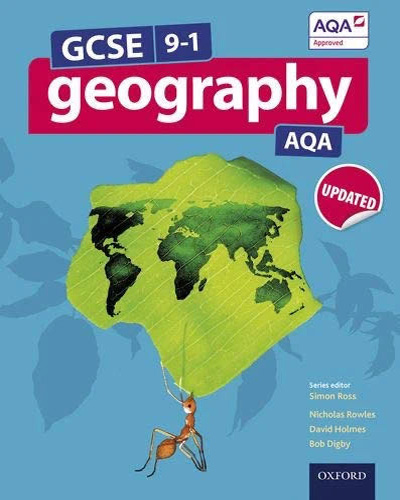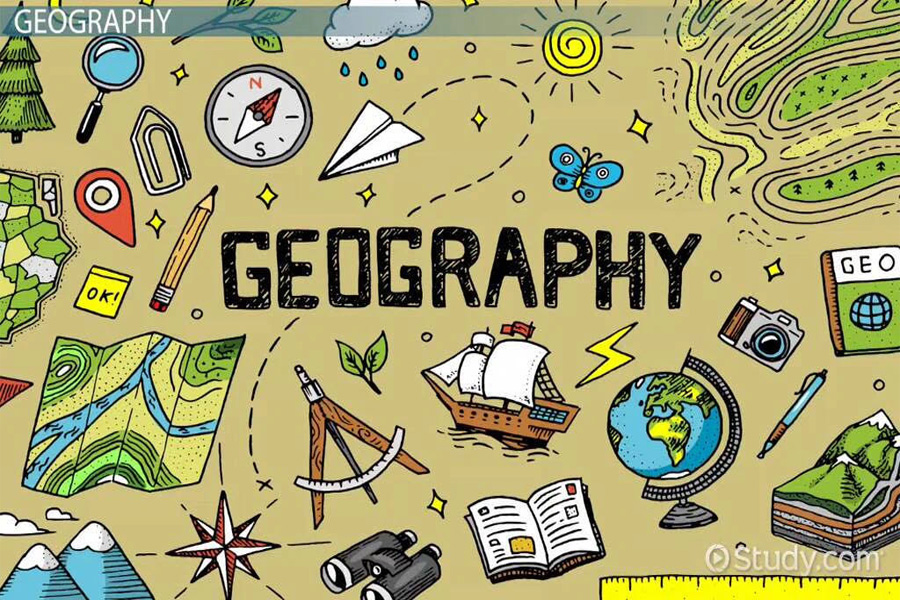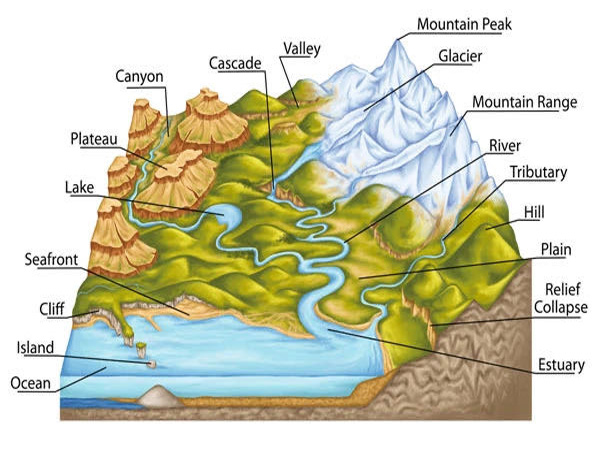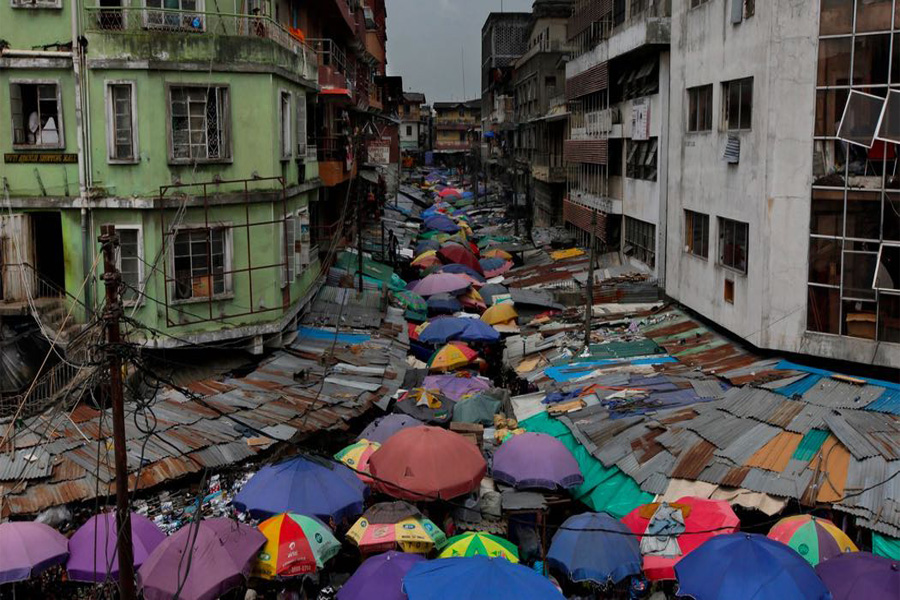留学关注
GCSE科目梗概 l 第一部分:地理学
智澳教育是英国克利夫顿学院特许认可的
报考招生咨询服务机构,
欢迎广大家长朋友前来咨询了解!
亲爱的读者们,
大家好!本周我想跟大家聊一聊GCSE学习当中地理这一科目。英国的地理学是一门非常重要且十分受欢迎的学科,它不仅涵盖了像地球板块构造、火山运动这些科学层面的知识,还包含了社会人道主义的内容,比如全球发展、全球化、伦理学等等。这也是为什么地理学是1-9年级的必修课。虽然我在10年级没有选择继续选修地理,但并非我不喜欢,只是相对历史而言,我对后者更感兴趣。我依然极力向大家推荐地理这门学科,它涵盖了与我们当今世界紧密相关的各种话题。

课堂内容
为了方便大家理解,我会介绍AQA地理的课程大纲,AQA是最受学校欢迎的考试委员会之一,也是我自己最熟悉的,其他的课程大纲也大同小异。GCSE地理会涉及六部分,三部分基于自然地理,即地球自然以及地球运动部分,其他三部分是人类地理学,即人类与地球以及彼此之间如何互动。

从物理单元开始,我们先有了“自然灾害的挑战”。这个主题侧重于地球怎样造成自然灾害:构造危害 — 研究地球构造板块运动、火山爆发与地震的形成;气候危害 — 先是热带风暴,再探讨了英国的气候具有怎样的危险性;最后是气候变化,会学习人类行为与自然因素会给现在与未来带来怎样的气候变化。

第二个单元是“生活世界”,这一部分会学习生态系统,尤其是影响着整个星球的大型生态系统。先会从小型生态系统如池塘开始学习,后面根据学校的设置不同,会选择性研究热带沙漠地区或极寒地区。最后一个单元被称为“英国的风景”,这里会学习到英国地形的自然形成过程,包括河流景观 — 河流对国家的影响;海岸景观 — 海洋如何塑造景观;最后则是冰川景观,着眼于冰河时期的冰川怎样影响了英国。

再就是人文地理部分,这一部分同样也划分为三小节,第一个是“城市问题与挑战”,它主要介绍了城市发展以及上世纪激增的人口对社会及地球的影响。老师会以一个特定的城市来讲述这部分内容,大多数学校会以里约热内卢为例,之后会用英国的城市来举例,比如布里斯托 — 随着时间发展,这个城市发生了怎样的变化。最后则是关于城市可持续发展的学习,在这部分内容当中,我们可以了解到世界各地的城市在为可持续发展作出了怎样的努力。关于具体以哪些城市为例,可以咨询学校相关部门负责人。

第二个小节是“不断变化的世界经济”,在这部分内容当中,可以了解到有关全球发展的内容,我们会了解到全球发展的差异,以及不同地区人们生活存在差异的根本原因,同样,学校也会以一个具体的国家来举例,大多数学校会以尼日利亚为例。之后也会把课程重点引回到英国,我们会详细学习英国经济的发展过程,以及未来的走向。
最后一个小节则是“资源管理挑战”,这一部分会着眼于地球上人类最需要的三种资源 — 水、食物、能源。我们会学习这三种资源如何供给英国。至于具体研究哪一种类,还是要看学校安排。
以上就是有关GCSE地理课程的相关内容,下周我们会聊一下实地考察学习以及地理考试的安排。
Jack
英文版
For this week, I would like to talk about Geography at GCSE. Geography in the UK is a very important and popular subject as it covers not only the scientific side of our planet, such as tectonic plates and volcanoes but also the humanitarian side of our society, such as development, globalisation, and related ethics to it. This is probably why it's a compulsory subject up until GCSE, meaning that everyone has to study it through year 1 to 9. Although I have dropped geography in year ten, not because I don't enjoy it but because I'm more interested in history, I still would highly recommend the subject as it covers a diverse spread of topics which is highly relevant with the world we live in today.
The Classroom Content
For simplicity sake, I will be covering the AQA Geography syllabus as it's one of the more popular exam board for schools and it's the exam board I'm most familiar with, but other syllabuses wouldn’t be much different. GCSE geography involves six main units: three which are based around physical geography, which is the units that cover the natural parts of the planet and how it works; and the other three covers human geography, which focuses more on people and our interaction with the planet and each other.
Starting with the physical units we firstly have ‘The Challenges of Natural Hazards’. This topic looks at how planet earth can create dangerous events and is divided into three sub-topics which are: Tectonic Hazards - which looks at tectonic plates and how it cause volcanoes and earthquakes; Weather Hazards - which firstly looks at tropical storms and then moves on to how the weather can be dangerous in the UK as well; and finally, Climate Change - where we study the very relevant ways that our planet’s climate can be changed by human and natural factors and how this has affected the past and the present. The second topic is called ‘The Living World’ which is all about ecosystems, particularly, the large ones that dominate whole areas of our planet surface. We first take a very quick look at smaller ecosystems like a pond before moving on to looking at tropical rainforests. After that, depending on schools, you can either study hot desert or cold environments in detail. The final physical topic is called ‘Landscapes in the UK’, a unit about the natural processes that have shaped our country and the landforms in it. There are again three sub-subjects to this: River Landscapes - which focuses on rivers and how they shape the country; Coastal Landscapes - which involves how the ocean shapes our landscape; and finally, Glacier Landscapes - which focuses on how glaciers from the Ice Ages shaped Britain.
Then we have the Human Geography units (again divided into three main topics). The first we have is down as ‘Urban Issues and Challenges’, which covers cities and how they have grown in the last century along with how that can affect people and the planet as a whole. The topic begins on how the world is becoming more urbanised using a particular example city to teach that idea, which most schools choose Rio de Janeiro. After this, we look at the urban change in the United Kingdom where we focus on how one example UK city in changing over time, which most schools will choose Bristol. Finally, the unit ends with a short section on urban sustainability, where you spend a few lessons looking at cities around the world and how it has become more sustainable. The choice of the city, like in the other two sub-topics, depends on schools. So, if you are curious, just ask your school’s geography department. The second human unit is called “the changing Economic World’. This is where you get an understanding of something called global development and the Unit begins with a look at the global development gap showing how the lives lived by people in different parts of the world ban be radically different to each other. After that, we focus on one particular country which is developing at a rapid pace which most schools studies Nigeria as that country. Finally, the focus in the last sections returns back to the UK once again, where we look in detail about how the UK’s economy has changed over time and might change into the future. The third and final human unit is ‘The challenged of Resource Management’. In this topic, we look at the three resources our planet has that humans need the most- water, food, and energy - and we study how these three resources are provided for people in the UK. After that, we move on to study one of the three in greater detail, but the one you study, again, depends on your school.
Come back next week to see how the field trips work and also how the Geography exams are laid out.
Jack
*文章版权归Jack同学所有
﹏﹏
想了解更多英国私校申请,
请咨询我们。